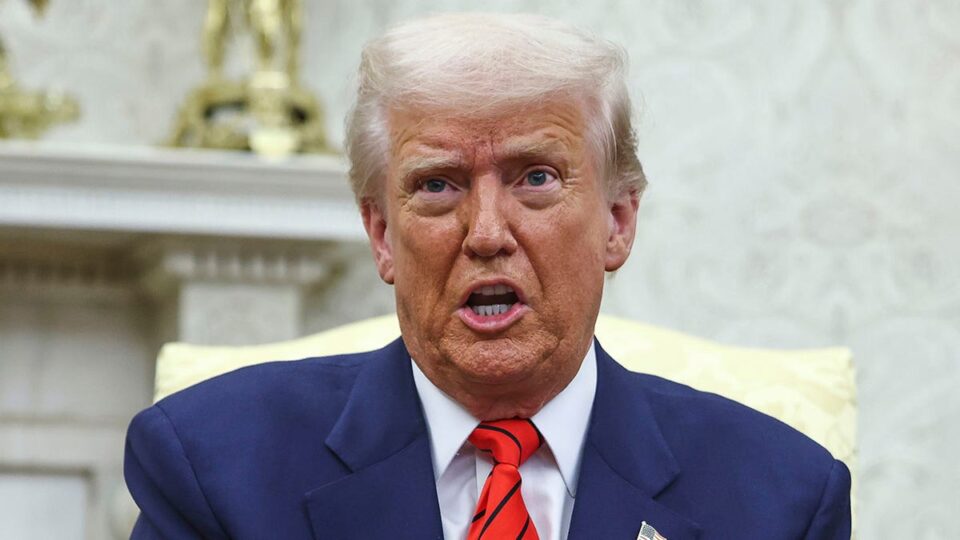NEWYou can now listen to Fox News articles!
The NATO summit will be held at The Hague in the Netherlands from June 24-25 and a range of defensive issues are expected to be addressed, including expanding national spending commitments, aid to Ukraine, emerging threats from Iran and relations with the U.S. under President Donald Trump.
This will be the president’s first transatlantic summit since returning to the White House in January, and all eyes are on Trump, who has not shied away from explosive moments with U.S. allies, including at previous NATO summits.
Following Saturday’s attack by the U.S. against Iran’s nuclear facilities, the Islamic Republic of Iran is expected to become one of the leading issues.
Here’s what’s on the agenda:
SPENDING
UKRAINE
IRAN, RUSSIA, CHINA
PUTIN RAISES THE STAKES ON ‘GHOST FLEET’ SECURITY, AS NATO LAUNCHES WAR GAMES IN THE BALTIC SEA
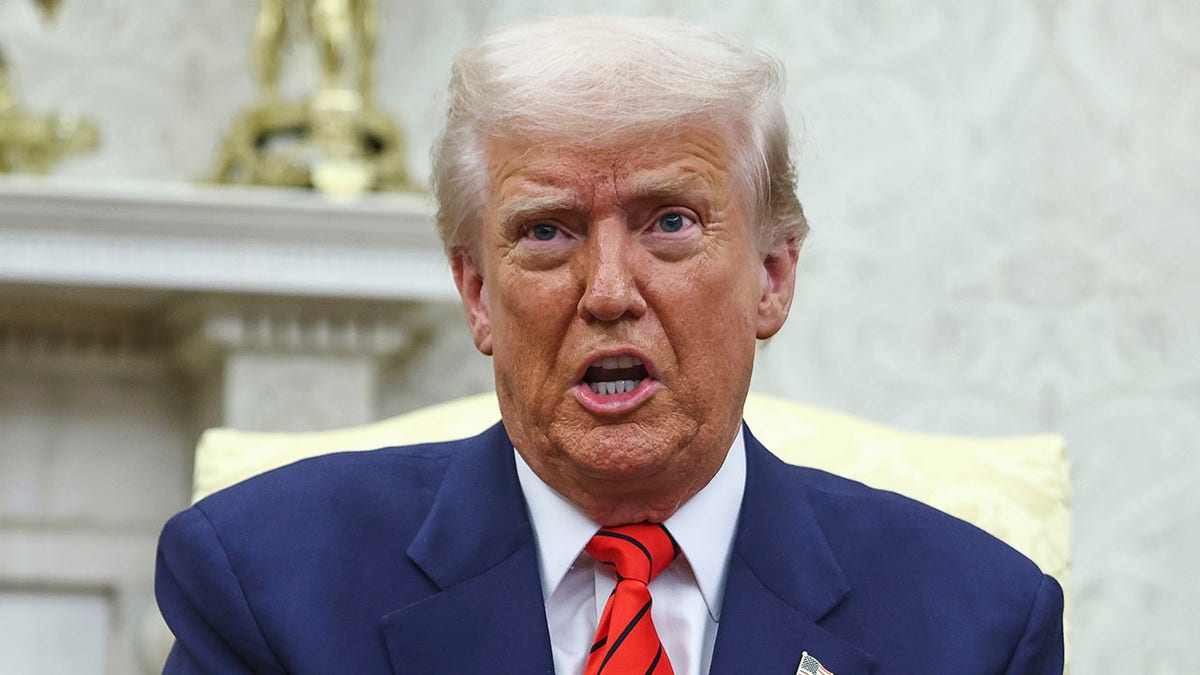
President Donald Trump speaks to the press following a White House meeting with NATO Secretary General Mark Rutte in Washington, D.C., on Thursday, March 13, 2025. (Pool via AP)
In a statement released one week ahead of the summit, NATO said the “Heads of State and Government are expected to agree [to] a new defense investment plan” after months of speculation the alliance could increase its spending commitments from 2% of a nation’s GDP to 5%.
The notion was first pushed by Trump after he won the election, and despite the sticker shock of what that could mean for not only the eight nations not yet hitting the 2% commitment, but also the U.S. which currently spends 3.38%, many European leaders got on board.
Fox News Digital has not been able to confirm if NATO will increase its commitment to 5%, and some sources with knowledge of the discussions have suggested that figure could be closer to 3.5% over a period of up to 10 years. On Friday, it was announced that Spain was given an opt-out of paying 5%, instead, it will pay 2.1%, according to a report in the Associated Press.
“The real focus will be the new defense spending target,” Peter Rough, senior fellow and director for the Center on Europe and Eurasia with the Hudson Institute, told Fox News Digital. “5% of gross domestic product as a top-line number – however, only 3.5% must be devoted to hard defense.
HEGSETH, MILITARY BRASS DESCRIBE ‘INCREDIBLE AND OVERWHELMING SUCCESS’ OF US STRIKES ON IRA
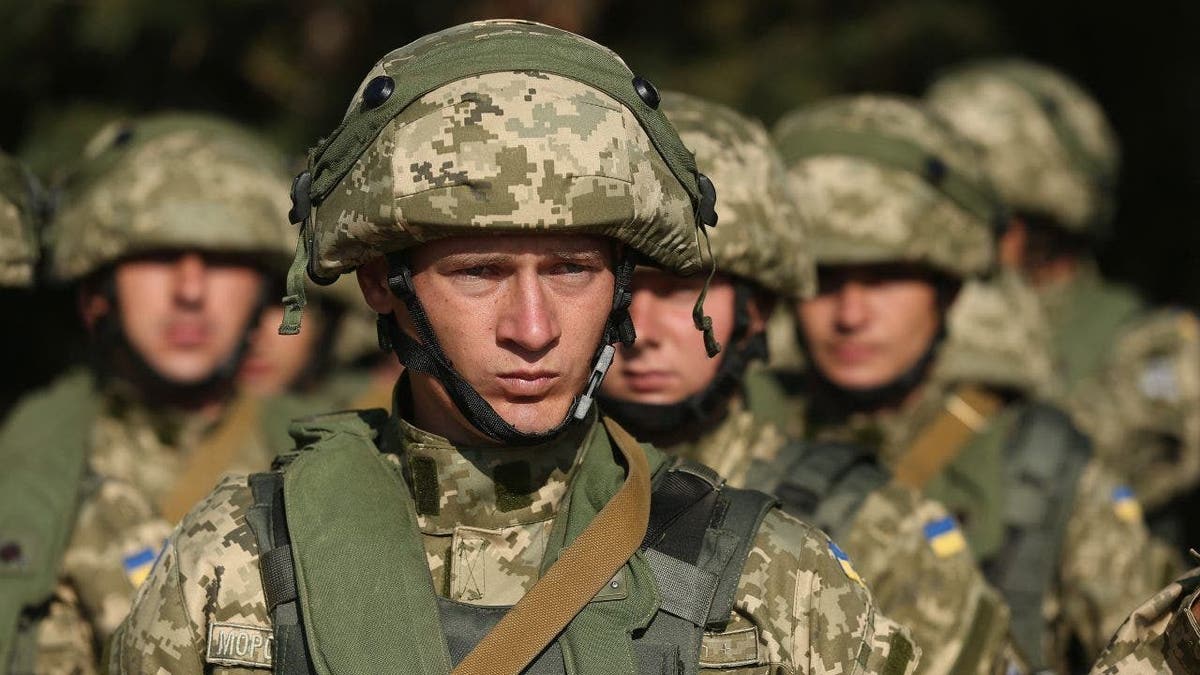
Ukrainian marines train in urban warfare techniques in bilateral military exercises between the United States and Ukraine, and include troops from a variety of NATO and non-NATO countries on Sept. 16, 2014, near Yavorov, Ukraine. Russian President Vladimir Putin has claimed Kyiv’s interest in joining NATO has been a leading reason for his invasion. (Photo by Sean Gallup/Getty Images)
“And 1.5% can count toward adjacent categories, like cybersecurity or infrastructure for military mobility,” he explained ahead of his testimony to the Senate Foreign Relations Committee regarding the NATO summit.
NATO Secretary General Mark Rutte has been an ardent supporter of increasing defense spending, particularly as Europe continues to face its greatest threat since World War II.
Earlier this month, ahead of a NATO ministerial meeting that served as a walk-up to the NATO summit, Rutte said leaders “will strengthen our deterrence and defense by agreeing ambitious new capability targets.”
He has detailed missile defense, long-range strike capabilities and deterrence as chief priorities, which comes not only as Russia continues its aggressive war in Ukraine, but as threats levied by a nuclearly ambitious Iran also escalate.
UKRAINE-RUSSIA PEACE TALKS YIELD NO CEASEFIRE, ZELENSKYY WARNS PUTIN SHOULD NOT BE ‘REWARDED’
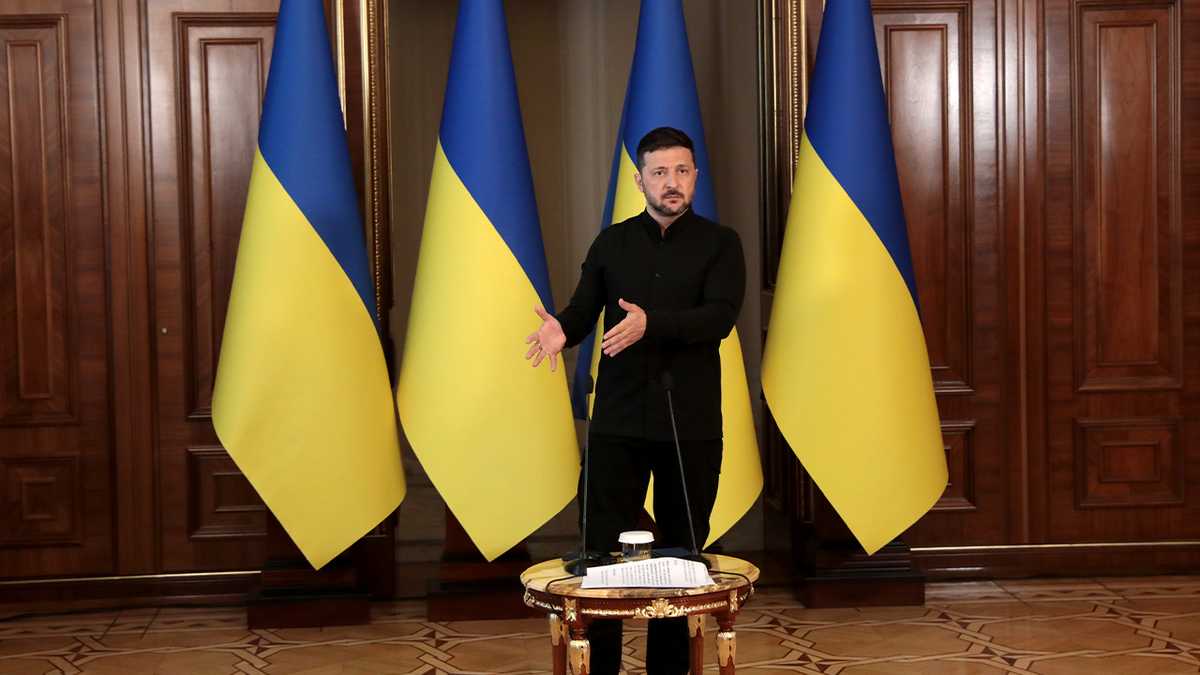
President of Ukraine Volodymyr Zelenskyy holds a news conference in Kyiv, Ukraine, on May 13, 2025. (Ukrinform/NurPhoto via Getty Images)
The issue of defending Ukraine is once again expected to be a top agenda item and has been a driving force in motivating the NATO alliance to drastically increase spending, which nations under the alliance first did following Russia’s 2022 invasion of Ukraine.
However, given Trump’s consistent push for increased NATO defensive spending, his threats to withdraw troops from Europe and his insistence that Kyiv not be allowed to join the 32-member alliance, Ukraine’s defense may not play as big of a front-and-center role this year.
“There won’t be nearly as much focus on Ukraine as during the past few summits,” argued Rough. “The White House is laser-focused on the defense investment pledge, and none of the other allies want to rock the boat.”
While nations like France, the UK and Germany have taken more direct leadership positions and ardently pledged their continued support for Ukraine, they have also toed the line when it comes to managing transatlantic relationships with Washington under Trump.
“I’d expect a short, concise summit declaration with some mention of Ukraine but none of the ornate language that characterized past communiqués,” Rough added.
Ukrainian President Volodymyr Zelenskyy is expected to attend portions of the summit’s activities, like the opening dinner, though he is not yet confirmed to attend any official NATO meetings.
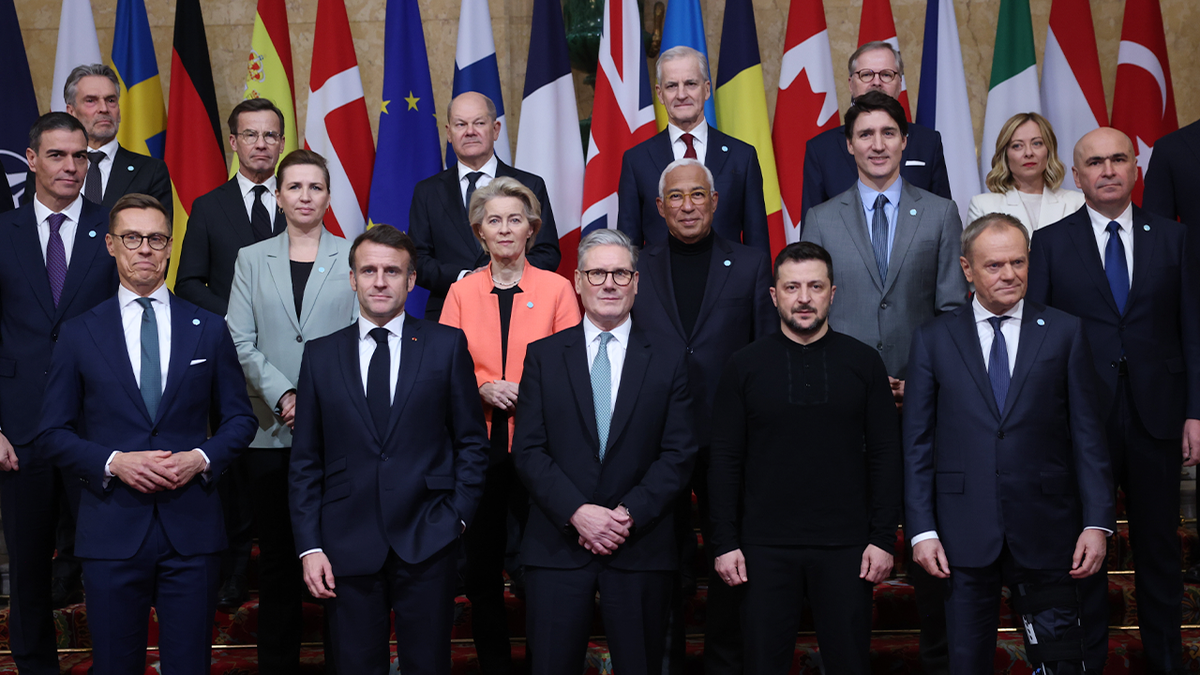
UK Prime Minister Keir Starmer, bottom center, Ukrainian President Volodymyr Zelenskiy, bottom second right, and other world leaders attend a defensive summit at Lancaster House in London on Sunday, March 2, 2025. (Neil Hall/EPA/Bloomberg via Getty Images )
Reporting suggested Trump could take issue with having Zelenskyy at a NATO event amid seemingly stalled ceasefire negotiations with Russia – which have begun to take a backseat amid the strife between Israel and Iran.
Trump has not held back at previous NATO summits when it came to the conflict over Russia, including in 2018 when he openly clashed with then-German Chancellor Angela Merkel when he accused Berlin of being “totally controlled by Russia” and claimed it was a “bad thing for NATO.”
NEW REPORT WARNS NATO’S DATA VULNERABILITIES COULD COST LIVES WITHOUT US FIX
With the U.S. launching Operation Midnight Hammer against three of Iran’s nuclear facilities at Fordow, Natanz and Isfahan on Saturday, Iran is set to be one of the main topics for discussions by the NATO members as tensions with the regime in Tehran rise.
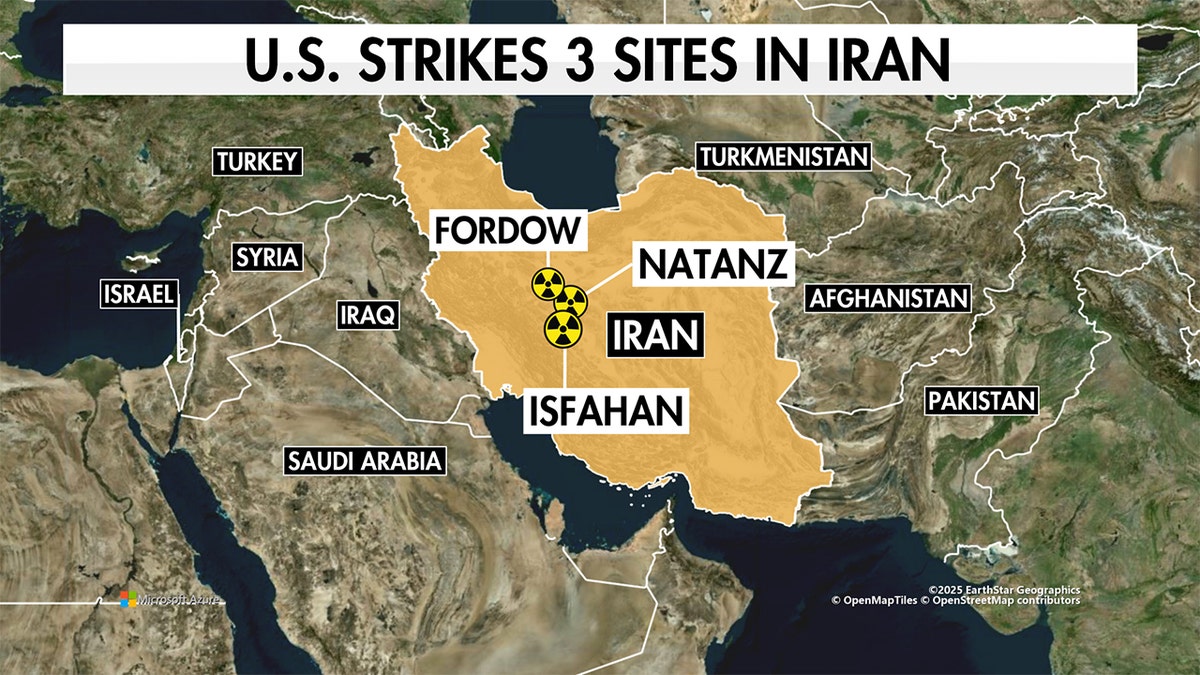
Map of Iran nuclear facilities attacked by the US (Fox News)
Additionally, Russia continues to pose the greatest threat to Europe, not only as its war ambitions continue in Ukraine, but as intelligence agencies increasingly warn that “Russia’s postwar focus will be on NATO.”
Rough, in his testimony to the Senate, pointed to findings by Germany’s Federal Intelligence Agency that said earlier this month that “We see that NATO’s collective defense promise is to be tested…We are very sure, and we have intelligence evidence to back this up, that Ukraine is only one step on Russia’s path towards the West.”
Danish intelligence issued similar warnings earlier this year and said that should it find the right opportunity, Russia could launch hostile operations against a neighboring nation within six months of regrouping after a ceasefire in Ukraine.
Rutte highlighted the severity of the direct threat Russia poses and said earlier this month during a trip to the UK that if nations do not take seriously the need to invest in the 5% defense spending push, then “you better learn to speak Russian.”
The alliances Moscow has cemented during its war in Ukraine have also brought to the forefront a very real threat to the West as China, North Korea and Iran have all played a major role in fueling Russia’s war machine.

Russian President Vladimir Putin and North Korea’s leader Kim Jong Un, left, meet for a welcome ceremony in the Kim Il Sung Square in Pyongyang, North Korea, on Wednesday, June 19. (Korean Central News Agency/Korea News Service via AP)
FOR PUTIN, ‘US IS THE MAIN ENEMY,’ ESTONIAN FOREIGN MINISTER SAYS
China, while it claims neutrality in the war, has staunchly supplied Russia with electronic components critical to modern warfare. Iran has supplied drones and technical know-how, while North Korea has not only provided munitions and military equipment, but boots on the ground for the war.
While China and Russia have repeatedly committed their partnership as united against the West, North Korea has become increasingly emboldened and been provided technical know-how for missile development in exchange for its support, which poses a significant threat to not only partners in the East, but Western interests.
Rough warned that “Russian President Vladimir Putin remains implacably opposed to the U.S.-European partnership, which he seeks to undermine at every opportunity.”
Additionally, Rough, citing U.S. military officials in Europe, said it would be a mistake to remove U.S. troops from Europe amid these increasingly united threats against the West.
Troop agreements, collective defense and U.S. involvement in deterring Russia, China, North Korea and Iran are all expected to be a major point of discussion.
The Associated Press contributed to this report.

